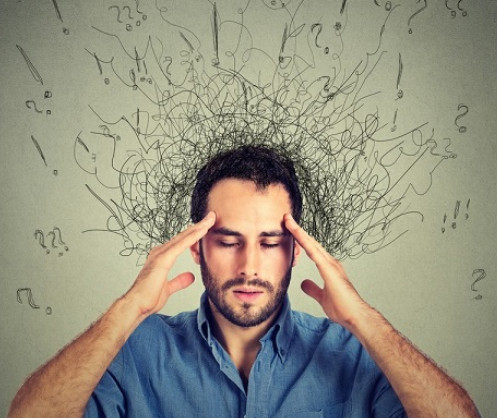Hormonal anxiety is a term used to describe the symptoms of anxiety that occur as a result of changes in hormone levels. Hormonal changes can occur naturally as part of the menstrual cycle, pregnancy, menopause, and aging, or they can be the result of medical conditions or medications. Hormonal anxiety can be a significant source of stress and discomfort for many people, and it can have a major impact on mental health, relationships, and overall quality of life. In this essay, we will explore the causes of hormonal anxiety, its symptoms and effects, and the various treatment options available.
How Hormones Affect Anxiety :
Hormonal anxiety can be caused by changes in hormone levels that occur as a result of various physiological processes. For example, during the menstrual cycle, the levels of hormones such as estrogen and progesterone can fluctuate, leading to symptoms of anxiety and depression. Pregnancy and menopause can also cause significant hormonal changes that can lead to anxiety symptoms. Additionally, hormonal changes that occur as a result of aging, such as the decline of estrogen levels in menopausal women, can also contribute to hormonal anxiety.

Hormonal anxiety can also be a side effect of medical conditions and medications. For example, conditions such as polycystic ovary syndrome (PCOS), thyroid disorders, and adrenal gland disorders can lead to hormonal imbalances that can cause symptoms of anxiety. Similarly, medications used to treat these conditions, such as hormonal contraceptives, can also contribute to hormonal anxiety.
The symptoms of hormonal anxiety can be similar to those of other types of anxiety, and they may include feelings of restlessness, irritability, panic attacks, and a sense of impending doom. Physical symptoms of hormonal anxiety can include sweating, shaking, and a racing heartbeat. anxiety can also lead to changes in sleep patterns, as well as feelings of fatigue and exhaustion. Additionally, anxiety can cause a range of emotional and psychological symptoms, such as depression, low self-esteem, and feelings of hopelessness.
Hormonal anxiety can have a major impact on a person’s life, affecting not only their mental and physical health, but also their relationships and overall quality of life. For example, anxiety can make it difficult for people to maintain healthy relationships, as they may experience feelings of irritability and mood swings. Additionally, anxiety can impact a person’s ability to perform well at work or school, as it can interfere with their concentration, motivation, and overall well-being.
There are several treatment options available for people who experience hormonal anxiety. The most effective approach will depend on the underlying cause of the anxiety, as well as the severity and frequency of symptoms. Some of the most common treatments for anxiety include:
- Medications: Antidepressants, such as selective serotonin reuptake inhibitors (SSRIs), can be effective in reducing symptoms of hormonal anxiety. Other medications, such as benzodiazepines, may also be used to manage symptoms, but they should be used with caution, as they can be habit-forming and have other side effects.
- Hormonal therapy: Hormonal therapy, such as hormone replacement therapy (HRT), can be used to treat hormonal imbalances that are causing symptoms of anxiety. This type of therapy involves taking hormones to restore the balance of hormones in the body.
- Psychotherapy: Psychotherapy, such as cognitive-behavioral therapy (CBT), can help people understand and manage their anxiety symptoms. CBT can help individuals identify and change negative thought patterns, as well as develop effective coping strategies for managing anxiety.
- Lifestyle changes: Making lifestyle changes, such as engaging in regular exercise, eating a healthy diet, and reducing stress levels, can help reduce symptoms of anxiety. Getting enough sleep and practicing relaxation techniques, such as deep breathing, meditation, and yoga, can also be beneficial.
- Support groups: Joining a support group can provide individuals with a sense of community and help them feel less alone in their struggle with anxiety. Support groups can also provide a forum for people to share their experiences, offer advice, and provide encouragement.
In conclusion, hormonal anxiety is a common condition that can be caused by various physiological processes and medical conditions. The symptoms of anxiety can be severe and can impact a person’s mental and physical health, relationships, and overall quality of life. However, with the right treatment and support, individuals can manage their anxiety and lead a healthy and fulfilling life. If you are experiencing symptoms of anxiety, it is important to speak with your doctor, who can help you determine the best course of action and provide you with the resources you need to overcome your anxiety.


